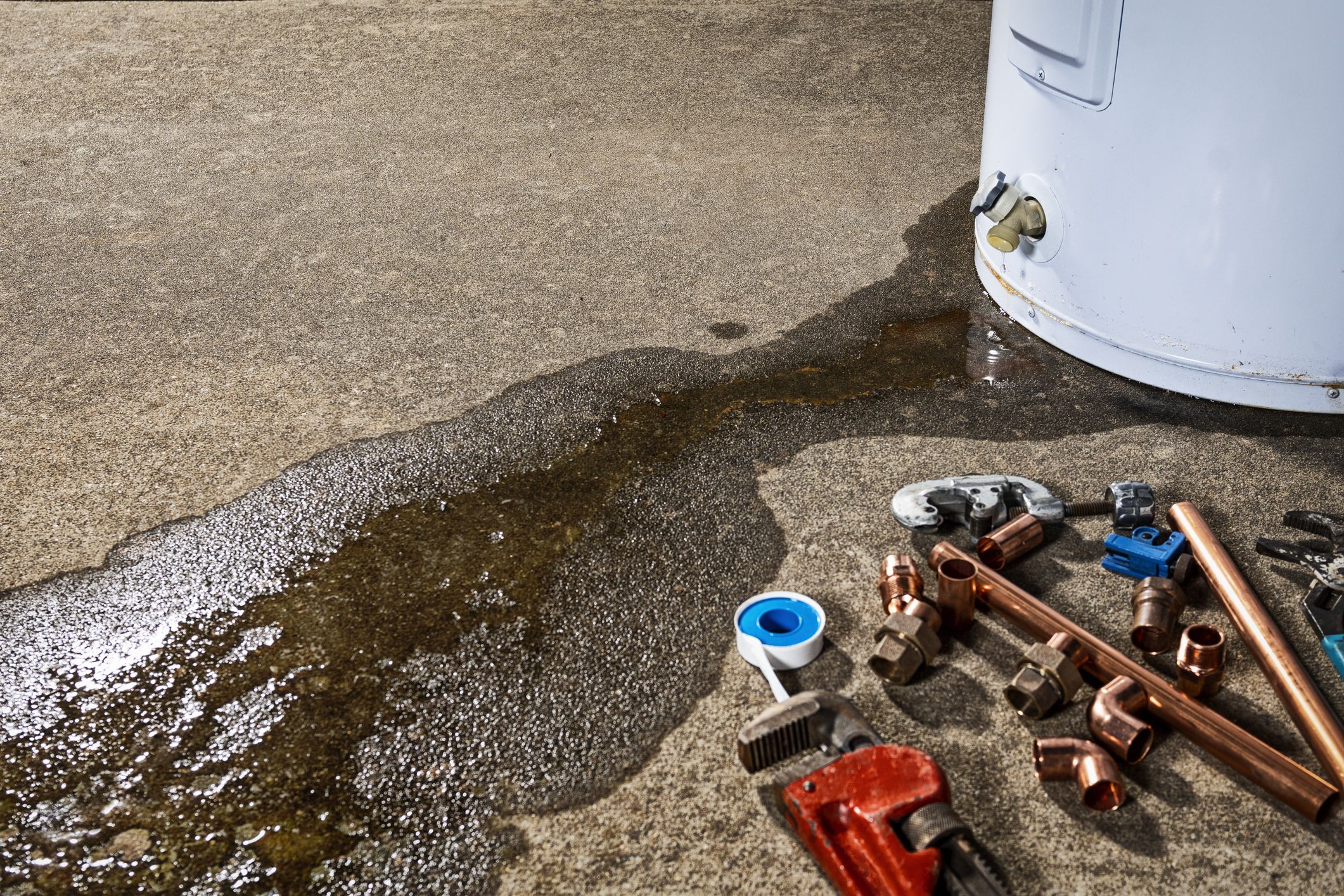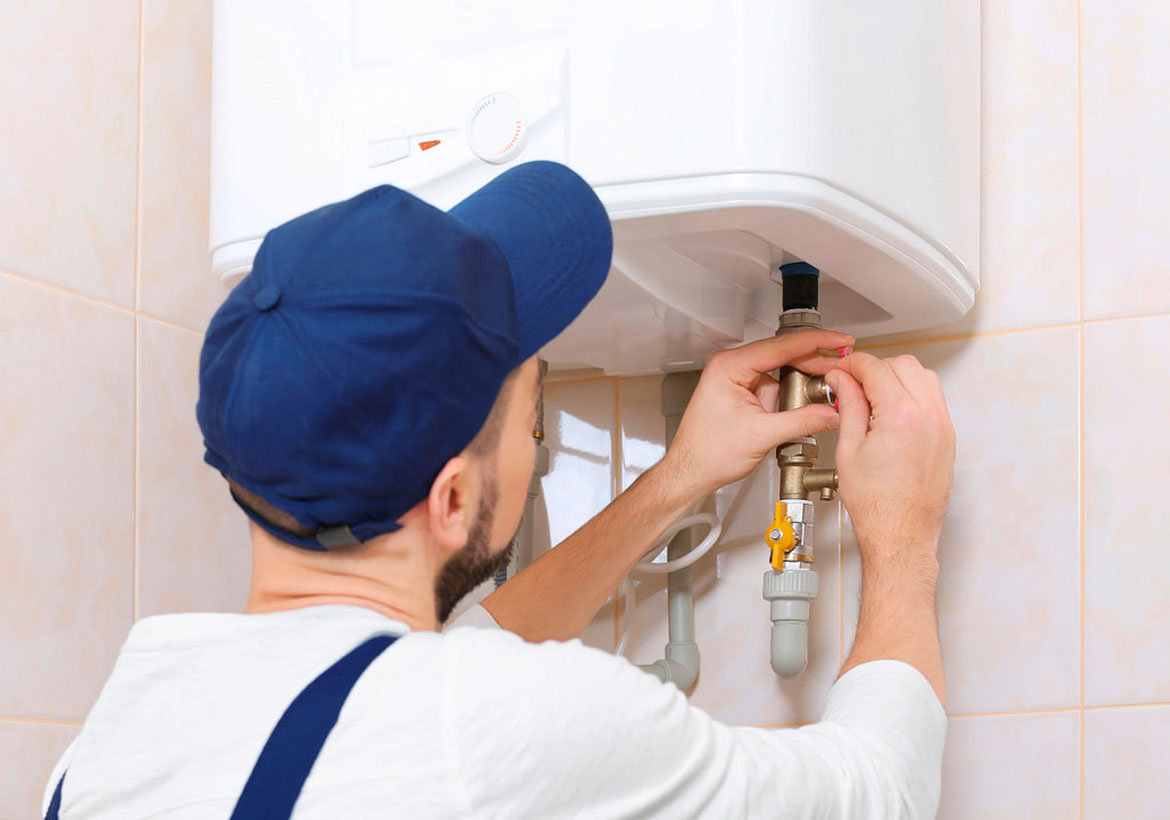Key Steps for House Owners Managing Faulty Heating Units
Key Steps for House Owners Managing Faulty Heating Units
Blog Article
We have found this great article pertaining to Water Heater Repair directly below on the web and believe it made sense to write about it with you on my blog.

Whether it lies in the cellar or a separate space, busted hot water heater can cause tension. A common device holds 80 gallons, so an over night leakage will certainly lead to a flood. This results in major home damage with soaked walls and also floorings. Besides, having no warm water supply is likewise bothersome. If you are managing these concerns, make note of the following:
Turn Off Source Of Power
Before calling the plumber, closed off a gas water heating unit by turning the temperature dial. This will protect against electrocution, especially if there is a leakage as water is a conductor. Generally, the heating element shuts off when the water strikes a details temperature.
Cut Off the Cold Water Supply
Cut off the containers tap water supply from the source. When your storage tank is in great condition, the chilly water stops filling up when the storage tank is full. If you can not discover it or reach it, you should turn off that major water supply line outside your property.
Call the Plumber
After doing the first 2 safety steps, you have to call your plumber to come immediately to fix a burst water heater. Bear in mind that your system will not simply conk out substantially overnight. There are generally indications that your aging hot water heater has debris buildup in the inside. Keep in mind of the following:
Do not wait on major flooding to call the plumber. Already, you will need to invest even more to restore your building. Rather, as soon as you identify these indications, have actually a professional come to inspect your hot water heater give thanks to. Typically, hot water heater have a life expectancy of about 8 to 12 years. With normal assessment and upkeep, you can prolong its life.
Tidy up Building
After calling the plumber, file damage by taking notes and photos so you can declare your home owner's insurance. From there, start the instant cleanup. Get any essential personal belongings to avoid additional soaking. Eliminate any standing water to protect against mold and mildew and also mold development. If you have a completely submersible water pump, use that to drain pipes the water. Otherwise, the standard pail method will also function. Try to wipe out whatever, consisting of wall surfaces as well as walls. If you have an electric fan and dehumidifier, keep them going to keep air flowing. This will certainly help discourage mold growth.
Bear in mind, if you observe any type of issues with your water heating unit, call the pros right away. You can not take this problem lightly because a malfunctioning thermostat can increase water temperature to an alarmingly high level, leading to unintended burns.
Whether it is situated in the basement or a separate room, busted water heating units can create stress. Before calling the plumber, shut off a gas water heater by turning the temperature dial. After doing the initial two safety steps, you should call your plumber to come right away to take care of a ruptured water heating unit. If you have a submersible water pump, utilize that to drain the water. Remember, if you notice any concerns with your water heating unit, call the pros right away.
Is My Water Heater Broken?
The Water Heater is Old
No appliance will last forever. This includes a home’s water heater. During its lifespan, residents are going to face a situation where a new water heater installation will be necessary. The biggest problem with this is that most people are not sure when their water heater expires. Not knowing this can lead to serious risks if the unit begins to act up due to old age.
Most makes and models of water heaters will last between eight and 10 years. While 10 years is the age when water heater replacement is highly recommended, the need to replace the unit may occur before this time or after. If the unit doesn’t show any symptoms of a problem, it is a good idea to replace it at the 10-year mark (from the manufacture date).
Some of the symptoms that indicate a new unit is needed include rusting, leaks, noises, and a failure to heat up the water. Also, note that not all units have a 10-year life expectancy. The main exception to this rule is that a gas unit will last for six to eight years.
Rusty Heater Inlet Valve or Water
While steel is the strongest material on earth, it does have a weakness – rust. If corrosion occurs on a steel surface, it will begin to spread and eat through the steel in certain areas. On water tanks and pipes that are made of steel, rust is a warning sign of an impending leak.
The issue for many is trying to figure out if the rust is coming from the water heater or the pipes that lead to the faucet. If rust is seen, it is a clear indication that water heater service from the professionals is needed.
If rusty water appears out of the faucets in the bathtub or sink, it likely means a rusty water heater. If there is rust near the water inlet or the pressure relief valve, rust has likely developed inside the tank. If tap water appears rusty, it may be an issue with the pipes.
Strange Sounds from the Water Heater
Are there strange sounds coming from the tank? As a water heater gets older, rumbling noises may develop and get louder and louder as the water in the tank heats up. In homes where large amounts of hot water are used, the issue is likely going to be even more obvious when more serious issues arise. If there is a strange or loud noise coming from the unit, it is probably because of sediment buildup. A good way to remedy this problem is by flushing the heater. If this does not work, then a new unit may need to be installed.
Leaks
As a water heater gets closer to the end of its useful life, there is a higher chance there will be water around the tank. If there is water, this usually means leaks are occurring. Based on where the unit is located in the home, a leak may result in serious property damage.
Leaks are usually caused by expansions in the metal tank. The expansions occur as time passes and as the inside body of the tank is exposed to multiple heating cycles per day. When a fracture forms, the gap will be slight enough to hold the water in; however, in more serious situations, this will not be the case. If the tank is idle, the water will not leak but when the metal expands during each heating system, small amounts of water will get through the gap.

As an enthusiastic person who reads about How to Avoid a Broken Hot Water Heater, I assumed sharing that piece of writing was a good thing. Do you know somebody else who is excited about Water Heater Burst? Do not hesitate to share it. We truly appreciate reading our article about Maintaining & Draining a Water Heater.
Quick solution? Call. Report this page